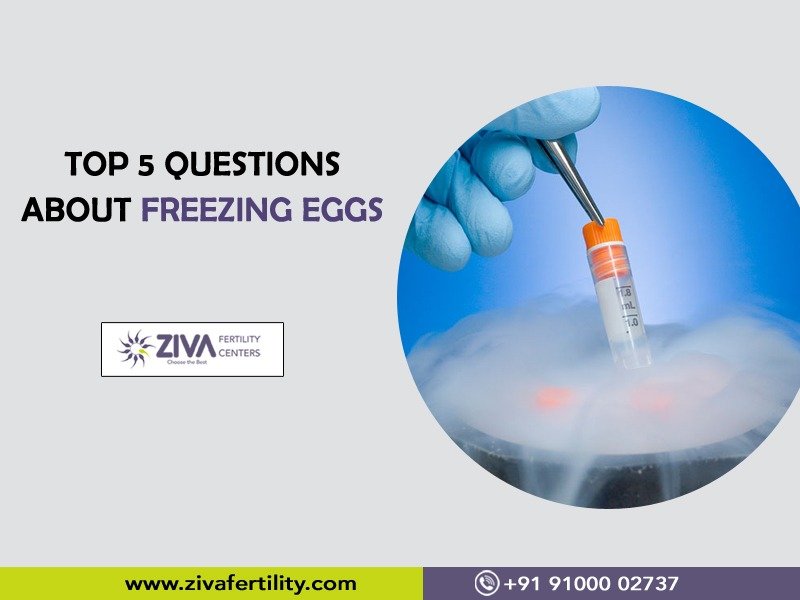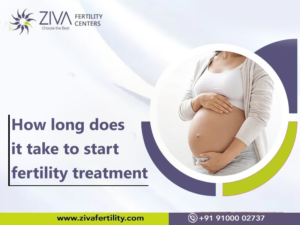The world is fast changing in all aspects. There are shifts in social, economic, professional, relationships and health aspects. Women, especially, are making more and more independent choices about childbirth. They want to have the option of choosing the timing of pregnancy and child raising. Apart from socio-economic changes, many medical conditions also require egg freezing. There is also a rising awareness about egg freezing. With advancements in egg-freezing technologies, women can freeze their eggs safely for later use. Later these eggs can be used along with the male partner’s sperm or a donor’s sperm to get pregnant. If there are long-term health complications and women cannot get pregnant themselves, they can also use frozen eggs for surrogacy.
Hence, it is evident that egg freezing is a life-altering decision, so one should fully understand this process before committing to it. We’re here to help. In this blog, we will understand the top 5 questions you should ask a potential egg-freezing provider.
Question -1 Enquire about the fertility centre’s lab facilities?

While freezing the eggs, their storage quality is crucial for future success. A fertility centre with a well-maintained lab can double your chances with fertility procedures. The lab must be up-to-date and support evidence-based technology and equipment to ensure the optimal environment. Most fertility clinics use another laboratory; enquiring about the lab is very important in such cases. Be sure to trust the fertility centre. The lab should be “purpose-built” for egg freezing, which means they should pay special attention to the optimization of egg freezing through the design and technology of our lab. While enquiring about their technology and equipment, ask about important factors such as:
Cryopreservation methods: The two most used methods are slow freezing and vitrification. Slow freezing is an older and less effective method. Vitrification is the new method of egg freezing. All labs have been using vitrification since 2019, as the percentage of surviving eggs is 90% with this method. In slow freezing, the survival rate is only 60%. Please opt for labs using vitrification and the advanced vitrification protocol known as the Cryotec method, ensuring the highest success rates for frozen eggs.
Incubators used in the lab: Incubators are storage units for the eggs maintained at ideal temperature and pH until they’re frozen. Some labs use a large box incubator containing many patients’ eggs, and every time the incubator is opened to access a patient’s eggs, the environment inside changes. As the box size is large, it takes longer for their interiors to return to the optimal temperature and pH. The latest is a benchtop incubator with six small chambers for each patient’s eggs, which maintains the stability of the incubator environment.
Question -2. Enquire about egg storage after freezing.

For the best preservation, your eggs must be stored at a stable -196ºC in liquid nitrogen storage tanks. The storage tanks must be highly monitored and secure. To find out about backup nitrogen refill systems’ safety, surveillance, security, and availability. The frozen eggs must be protected 24/7, 365 days a year. The lab must be protected from power failures by backup generators. It should also have a backup liquid nitrogen tank in case of an outage.
Question – 3. How are frozen eggs used?
When women want to use their frozen eggs, they are retrieved from the storage unit and thawed in a lab. The thawed eggs are used for fertilization in a process known as in vitro fertilization.IVF creates embryos which are transferred back into your uterus.
Question – 4 What is the best number of eggs that should be frozen?
The number of eggs that should be stored depends on your age, family, and future goals. The quality of eggs declines with age; hence, more eggs are required later. As per Brigham & Women’s, if the age of a woman is less than 35, they have an 85% chance of having a baby with 15 frozen eggs. The same chances for a 38-year-old are 60% with 15 frozen eggs. But a 38-year-old woman with 30 frozen eggs have an 85% chance of success.
How many kids you want and at what age you want to start conceiving also determine how many eggs you should store. If one wants a bigger family or wants to start at a later stage of life, then store more eggs. Apart from age and goals, your fertility specialist will indicate the number of eggs you should store.
Question – 5 What are the success rates with frozen eggs?
Please do not think that if I store one egg, it will result in one baby. The chances of pregnancy with frozen eggs depend on the woman’s age at the freezing time and the number of eggs frozen. Your fertility specialist should give you a realistic, evidence-based chance of pregnancy using your frozen eggs. If women aren’t getting practical information and are undergoing egg-freezing with unrealistic expectations will lead to disappointment.
At ZIVA Fertility clinics, we give an in-depth explanation of how egg freezing will benefit you. Behind all of this are your individual goals. How much time and finances you want to invest depends on you.
At ZIVA Fertility clinics, we offer the best guidance on egg freezing. We have the best expertise in achieving pregnancy with frozen eggs. We have decades of experience in handling ARTs with frozen eggs. Please visit our website https://zivafertility.com/ or contact us at
+91-9100002737, +91-9392834024, info@zivafertility.com
















